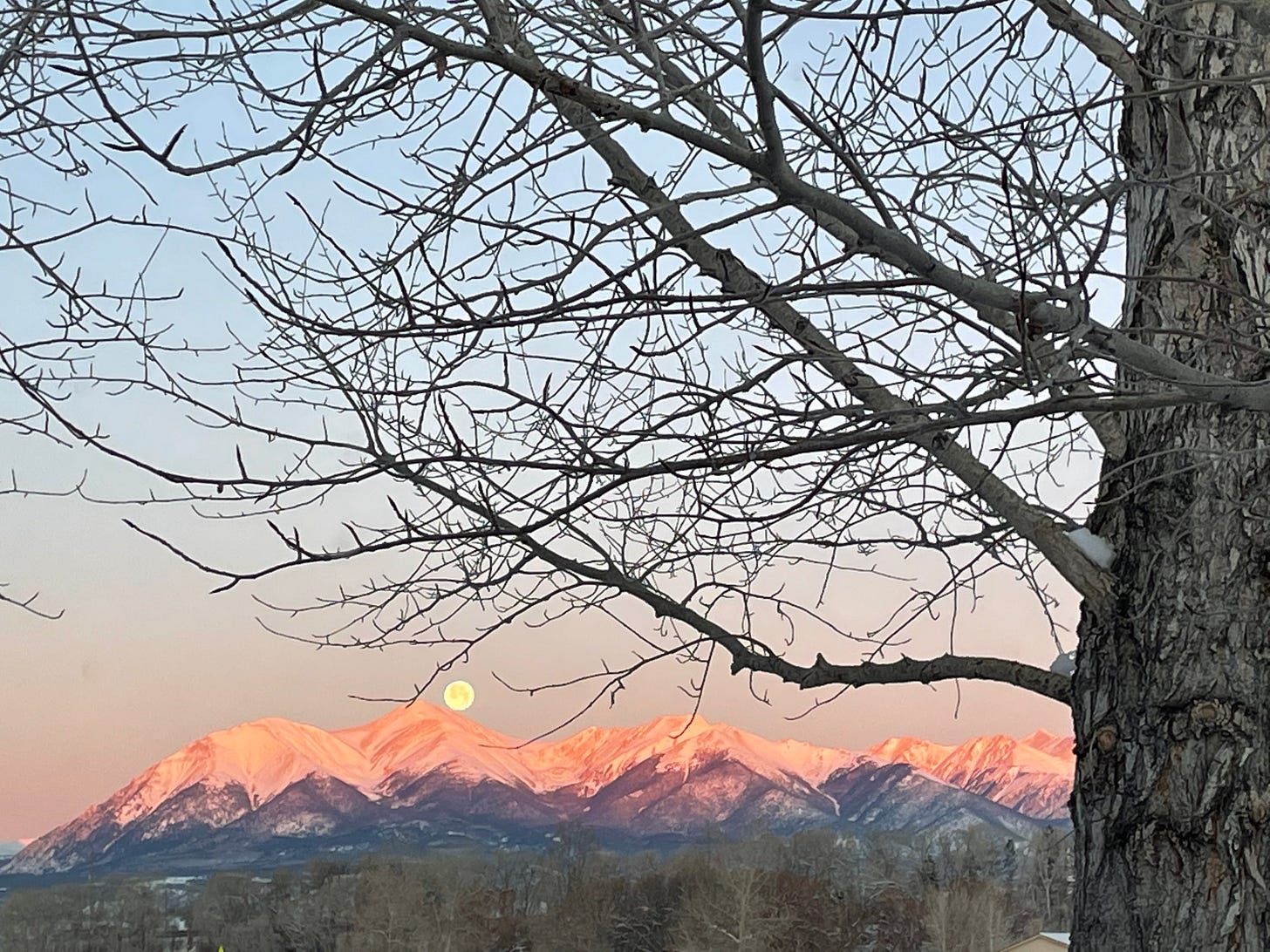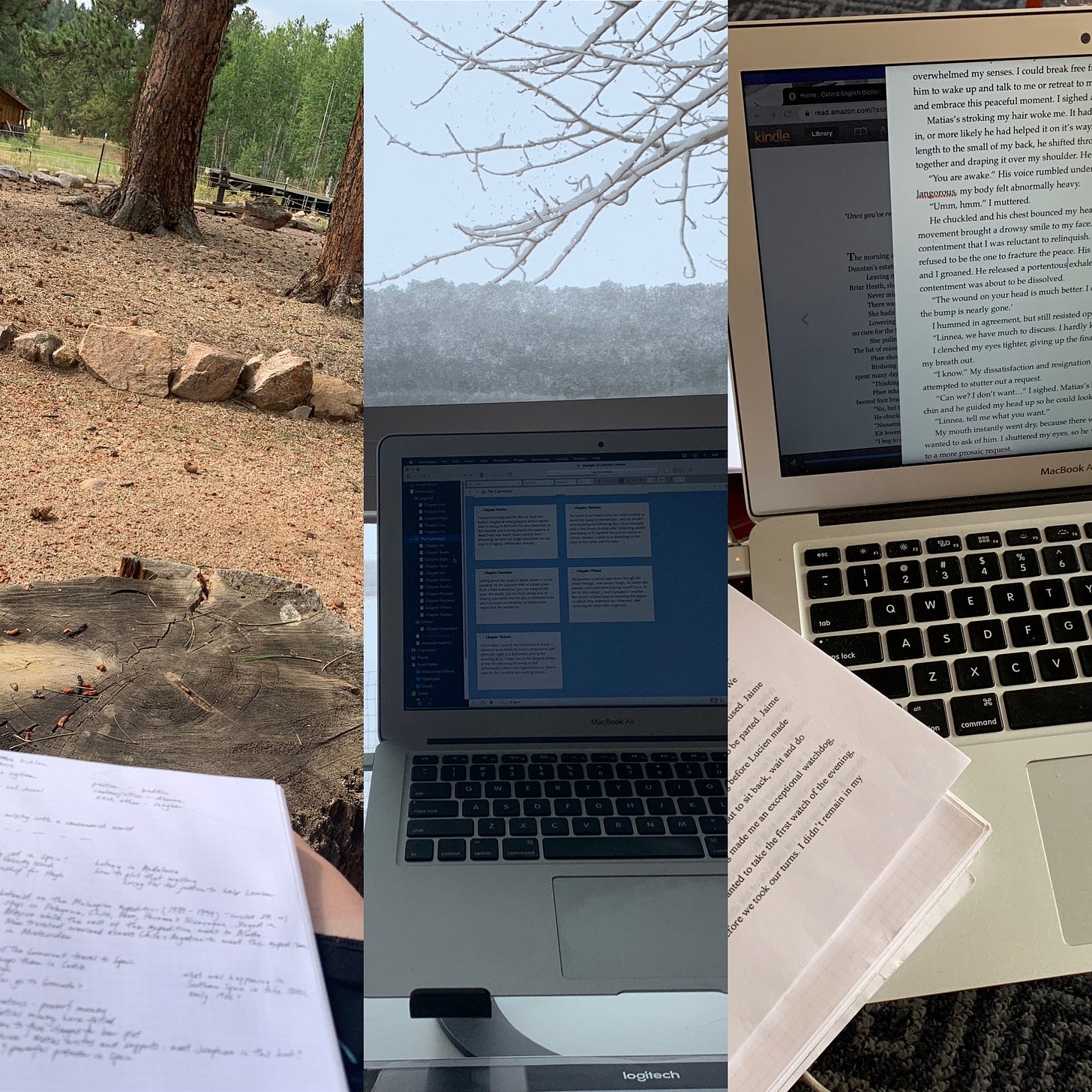Tomorrow is my two-year anniversary of writing as my primary career. Those two years were so much more than writing though, it has also been a major period of upheaval and change that I never could have anticipated. When I left my job and Fairbanks, the plans was that I would be gone a few months and here I am, still in Colorado. I thought I would share a few things I learned over the past two years as a full-time writer.
I had several chapters of my novel when I left my job, in fact I had been working on it for more than a year. One of the first things I did was establish a daily routine. I use a Pomodoro timer to block off my hours, this is the same for editing as well as writing. I write or research in 25-minute increments, followed by a 5-minute break and a longer break around midday. The other advantage to using the Pomodoro is that when the timer goes off, it is a signal to pull myself out of whatever rabbit hole I might fallen into (what plants were grown in Kew Garden in the 1800s? when were the first specimens brought from Chile to England? what wines were produced in the Andes in the 1800s). There have been many books written on “the best” writing schedule, how to tap into creative flow, etc. Some of those might work for you. You will know quickly what works for you and what doesn’t, and surprise, it changes! What works for me when I am in the flow of writing, needs some tweaking when it comes time to edit. Ursula Le Guin’s writing schedule is rather close to mine.
From: Ursula K. Le Guin: The Last Interview: and Other Conversations (2019).
I have always loved and related to the phrase: the loneliness of the long-distance runner. This phrase was the title of a short story by Alan Sillitoe, published in 1959 and later made into a movie (see rabbit holes). The writing life can be a lonely existence. In my experience the creation of a full-length novel, is a focused, solitary endeavor. Or at least it was for the first year or so, especially when combined with a global pandemic and moving to a new town. After being relatively alone during my working days, I reluctantly joined a Writer’s Room. Full of doubt that I wouldn’t measure up to the other writers, and wary that it would take the form of other writer’s groups I have known, I gave my shy, introverted self a pep talk and logged in. Without a doubt the Writer’s Room has been one of the best things to happen to me in the past two years. Every weekday, we meet on Zoom, chat for 20 minutes or so and then we write, for several hours, with our cameras on. On Fridays, we take turns reading and providing feedback. My gushing about this group could get embarrassing, so I will summarize with a few observations. Despite the solitary nature of writing, we need community. True community. Our Writer’s Room is not a place of competition, zinging critiques and judgement. We write in a variety of genres. We are all women. We are all over 40 years old. And friends, these women are mind-blowing. Their work, their lives, their insight and generosity, it dazzles me every day. I feel so fortunate to be part of the community. (Thank you, Tulani for creating and guiding our incomparable space). My advice: find your people. You will need them
Because here is the final lesson I will mention today: the process from draft to publication takes time. I finished my draft in May 2020, I finished my final draft (with extensive editing) in July 2021. I submitted my queries to agents in August 2021, and now I wait. For those of you unfamiliar with the traditional publishing route, the first step after finishing your manuscript is securing a literary agent through the querying process, your agent works on your behalf to secure a publishing contract. It is not a quick process. My polished, beloved manuscript has been with agents for more than two months. I carefully researched the agents before sending my queries. I’ve had a few rejections, I have had a few requests for the full manuscript, but for the most part it has been crickets. And that is part of the process. You can lose your mind (and creative energy) imagining scenarios for when and how you will hear from agents, but the bottom line is that this process is not a meritocracy, it is not predictable. And as an author you have zero control. For me, this has been where a community of writers has been crucial. Having other authors to talk with about this process and reassure each other, helps with the waiting. As is having a developmental editor (thank you, Larissa) who serves the tough love and tells you to buckle down with your sequel because it will take as long as it takes.
I wish that here on the second anniversary of throwing all in for my dream, I could tell you that I have an agent. But I can’t. What I can tell you is that the past two years have been amazing, and I haven’t regretted a moment of the process. I wrote a book. 118,000 words straight from my heart and my imagination. I can’t wait to share it with you, and that will happen someday. In the meantime, I will keep working on the next book and the next one, until I have nothing left to say.








I'm so curious what Ursula Le Guin does after 8pm! But jokes aside, very helpful and encouraging. Congratulation on finishing your book. And I also think the Writers Room is incredibly helpful. I was paying a writing coach just to keep me on task and deadline, and now that I found the Writers Room I feel I don't need that.
Your photo of you sums it up - great piece!